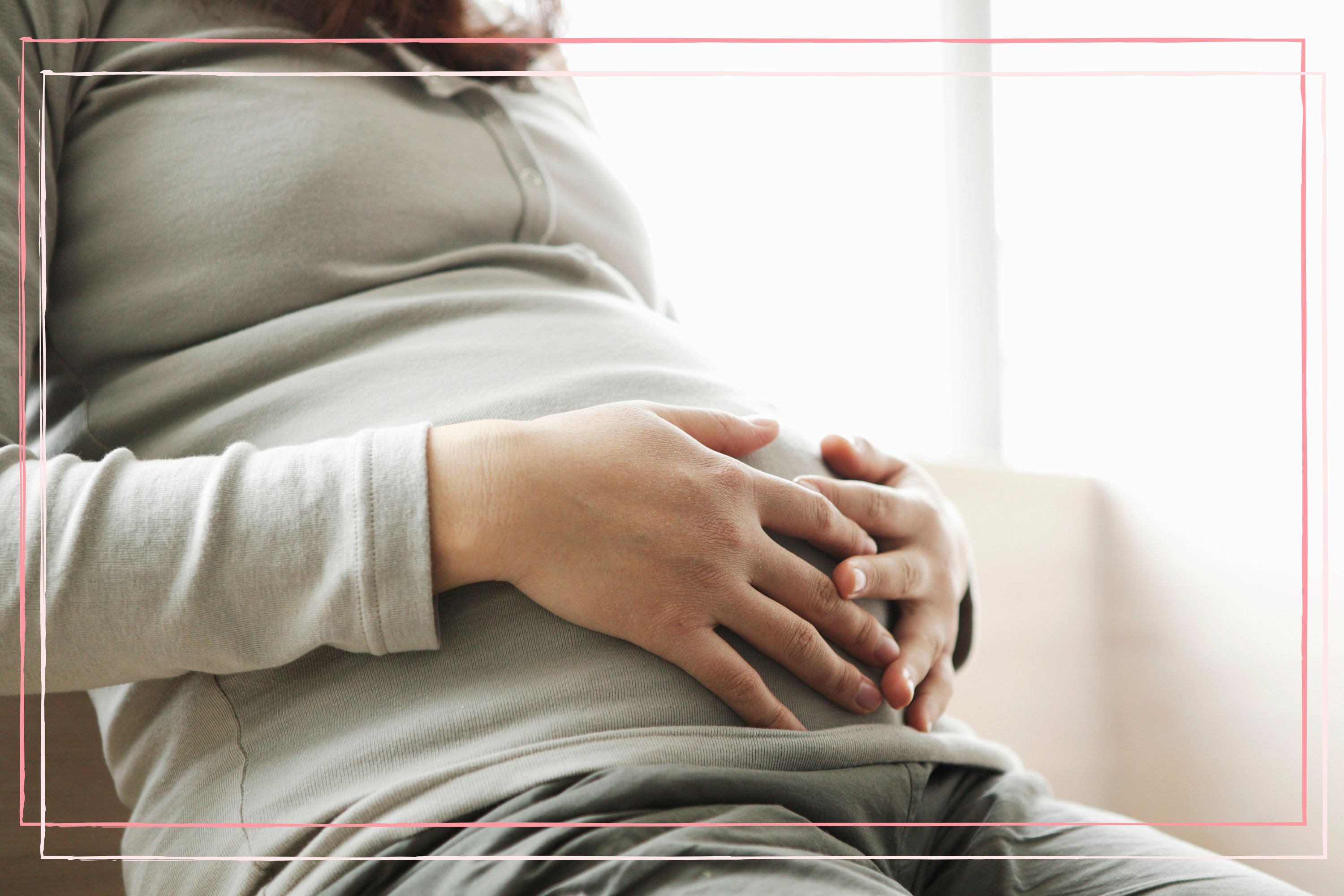How to relieve pregnancy constipation at home, according to doctors
Knowing how to relieve pregnancy constipation, and understanding the causes, can help you manage this condition effectively at home, ensuring both comfort and health during pregnancy.


Knowing how to relieve pregnancy constipation at home can help make your pregnancy more comfortable and provide relief from this common pregnancy complaint.
Miss Shazia Malik, a Consultant Obstetrician and Gynaecologist at The Portland Hospital explained to GoodToKnow, "Constipation is a frequent complaint among pregnant women, with changes in the body's physiology, hormones, and dietary habits all playing a role. While often uncomfortable, understanding the causes and remedies can help manage this condition effectively, ensuring both comfort and health during pregnancy."
As well as Dr Malik, we also consulted GP Dr Semiya Aziz, and both doctors shared their expert advice with us on the topic of pregnancy constipation and how to relieve the condition at home.
Both Dr Malik and Dr Aziz advised us that understanding and managing constipation during pregnancy through diet, lifestyle changes and safe remedies can significantly reduce discomfort. However, you should always consult with a healthcare provider for personalised advice and before trying new treatments.
The information in this article is for general purposes only and does not take the place of medical advice. It is essential to be guided by your GP and if you are unsure or concerned about your symptoms during pregnancy, then it is crucial to seek personalised advice from a doctor as soon as possible.
Why does pregnancy cause constipation?
"Pregnancy can cause constipation due to several factors," says Dr Malik. “The primary reason is the increase in the hormone progesterone, which relaxes muscle tissue throughout the body, including the digestive tract. This relaxation can slow down digestion, leading to constipation. Additionally, the expanding uterus can put pressure on the intestines, further inhibiting bowel movements."
GP Dr Aziz explains, "Constipation may occur at any point in the pregnancy and it will vary from person to person, however more commonly it presents in the first and third trimesters. This is due to hormonal changes and the pressure of the growing uterus on the intestines."
GoodtoKnow Newsletter
Parenting advice, hot topics, best buys and family finance tips delivered straight to your inbox.
How to relieve pregnancy constipation at home
First and foremost, consult with a healthcare provider before taking any medication, including over-the-counter remedies. You should also speak to your GP about pregnancy constipation, as Dr Malik explains, "Monitoring and adjusting diet and lifestyle throughout pregnancy can help manage this condition."
Both doctors we consulted for this article said that there are several natural remedies that can be tried at home to safely relieve constipation during pregnancy. These include:
- Eat fibre-rich foods: "Anyone suffering with constipation and particularly those who are pregnant should try to increase their fibre intake through foods such as fruits, vegetables, whole grains, and legumes," Dr Aziz advises. Dr Malik adds, "to alleviate constipation, increasing fibre intake through fruits, vegetables, and whole grains is recommended," and also recommends foods, "such as raspberries, pears, and whole grains and dates."
- Drink plenty of water: "Hydration is very important, so aim to drink plenty of water," advises Dr Aziz. Dr Malik explains, "increasing fluid intake can help soften stools and promote bowel movements."
- Stay physically active: "engaging in regular, gentle exercise can also help stimulate digestion," explains Dr Malik. "Staying active is also important in maintaining regular bowel movements…gentle exercises like walking or prenatal yoga can stimulate digestion.”
- Find ways to de-stress: Dr Aziz suggests, "practising relaxation techniques to minimise stress levels." Managing stress whilst pregnant is important in general. Practice self care, try relaxation exercises such as yoga, or talk to your GP about ways to manage stress.
- Try Kefir: "Drinking Kefir and adding yoghurt to your diet can be especially beneficial," suggests Dr Malik.
- Take daily probiotics: "Probiotic capsules can also be helpful in maintaining bowel health," says Dr Malik, although she emphasises the importance of talking to your doctor or GP before taking them for the first time, especially if you are pregnant: "Always discuss with a healthcare provider before trying new remedies."
- Speak to your doctor about magnesium: "Magnesium, which helps with muscle cramps and sleep, also seems to help in maintaining regular bowel movements," says Dr Malik. "Always discuss doses and preparations with your pharmacist or doctor before taking additional supplements."
- Reduce your intake of low-fibre foods: "To alleviate constipation, it may be helpful to reduce intake of low-fibre foods and those that can exacerbate constipation," says Dr Malik. These include processed foods - such as those high in fats and sugars but low in fibre, red meat - as it can slow down the movement of the bowel, and dairy products - as in some individuals dairy can worsen constipation.
Always discuss with a healthcare provider before trying any new remedies.
Are there any foods to avoid if experiencing constipation during pregnancy?
Dr Aziz says, "Try to avoid foods that are low in fibre.This group of foods includes processed foods such as refined grains, dairy products, and certain high-fat or high-sugar foods. By limiting these foods and focusing on a diet rich in fruits, vegetables, whole grains and legumes , one can help alleviate the symptoms of constipation."
Is banana good for constipation?
The answer to this question depends on the type of banana. Dr Malik explains, "Bananas can have varying effects on bowel movements. Unripe, green bananas may contribute to constipation due to their high starch content. In contrast, ripe bananas are higher in fibre and can help ease constipation."
Dr Aziz adds, "Although bananas contain some fibre, they are not as high in fibre as other fruits such as berries or apples or high water content fruits. Eating a variety of fibre-rich foods in your diet, along with plenty of water, is key to relieving constipation during pregnancy."
What natural laxatives are safe to use during pregnancy?
You should always discuss with a healthcare provider before trying any natural laxatives.
Dr Aziz says, "Natural laxatives safe to use during pregnancy include fibre supplements such as psyllium husk, prunes or prune juice - although check the sugar content. Flaxseeds also may be of benefit as they are high in fibre. Certain herbal teas such as chamomile or ginger tea may ease constipation. If, however, the constipation is causing increasing discomfort, then it is worthwhile consulting with the medical healthcare professional."
Can constipation affect pregnancy?
Dr Malik explains that, "while constipation itself does not usually affect the pregnancy or the baby, it can cause discomfort and in severe cases, contribute to the development of haemorrhoids, which are common in pregnancy. Managing constipation can help prevent complications."
Dr Aziz says, "Unfortunately, severe or prolonged constipation may lead to extreme discomfort, and result in the development of haemorrhoids and rectal bleeding. In severe cases, constipation may cause complications such as faecal impaction and secondary urinary retention which is the inability to pass urine."
If you are pregnant and constipated you should speak to your GP. If symptoms worsen, or you are concerned about your condition, you should immediately seek medical attention.
When should I be worried about constipation during pregnancy?
"If the constipation becomes severe enough, is persistent and is accompanied by symptoms such as abdominal pain, bloating, or rectal bleeding, then it is important to seek medical advice," Dr Aziz advises.
Dr Malik adds, "Consult a healthcare provider if constipation is accompanied by unusual or severe symptoms such as significant abdominal pain and blood in the stool – weight loss or alternating loose stools with constipation are red flags and need medical investigation and advice. Additionally, speak to a medical professional if it persists despite dietary and lifestyle changes."
Disclaimer
The information on GoodTo.com does not constitute medical or other health advice or diagnosis and should not be used as such. Although GoodtoKnow consults medical experts to create and fact-check content, this information is for general purposes only and does not take the place of medical advice. Always seek the guidance of a qualified health professional or seek urgent medical attention if needed.
Our experts

Dr Shazia Malik is a Consultant Obstetrician and Gynaecologist at The Portland Hospital (part of HCA Healthcare UK). Dr Malik is also based at Barnet Hospital in London, where she balances a busy Obstetric workload with being the Early Pregnancy and Emergency Gynaecology lead. Dr Malik obtained her medical degree at the University of Liverpool in 1991, where she graduated with Honours and the Gold Medal in Obstetrics and Gynaecology. She then embarked in specialist training in obstetrics at some of the largest tertiary level units in the UK.

Dr Semiya Aziz is a seasoned general practitioner with over 20 years of experience as a GP in both the NHS and in private practice. She first obtained her degree in microbiology from Queen Mary University of London, and subsequently, she obtained her MBBS from The Royal London Hospital. She is a member of the Royal College of General Practitioners and the British Society of Lifestyle Medicine. She is also registered with the Care Quality Commission (CQC) and the General Medical Council (GMC).

An internationally published digital journalist and editor, Rachael has worked for both news and lifestyle websites in the UK and abroad. Rachael's published work covers a broad spectrum of topics and she has written about everything from the future of sustainable travel, to the impact of the coronavirus pandemic on the world we live in, to the psychology of colour.
